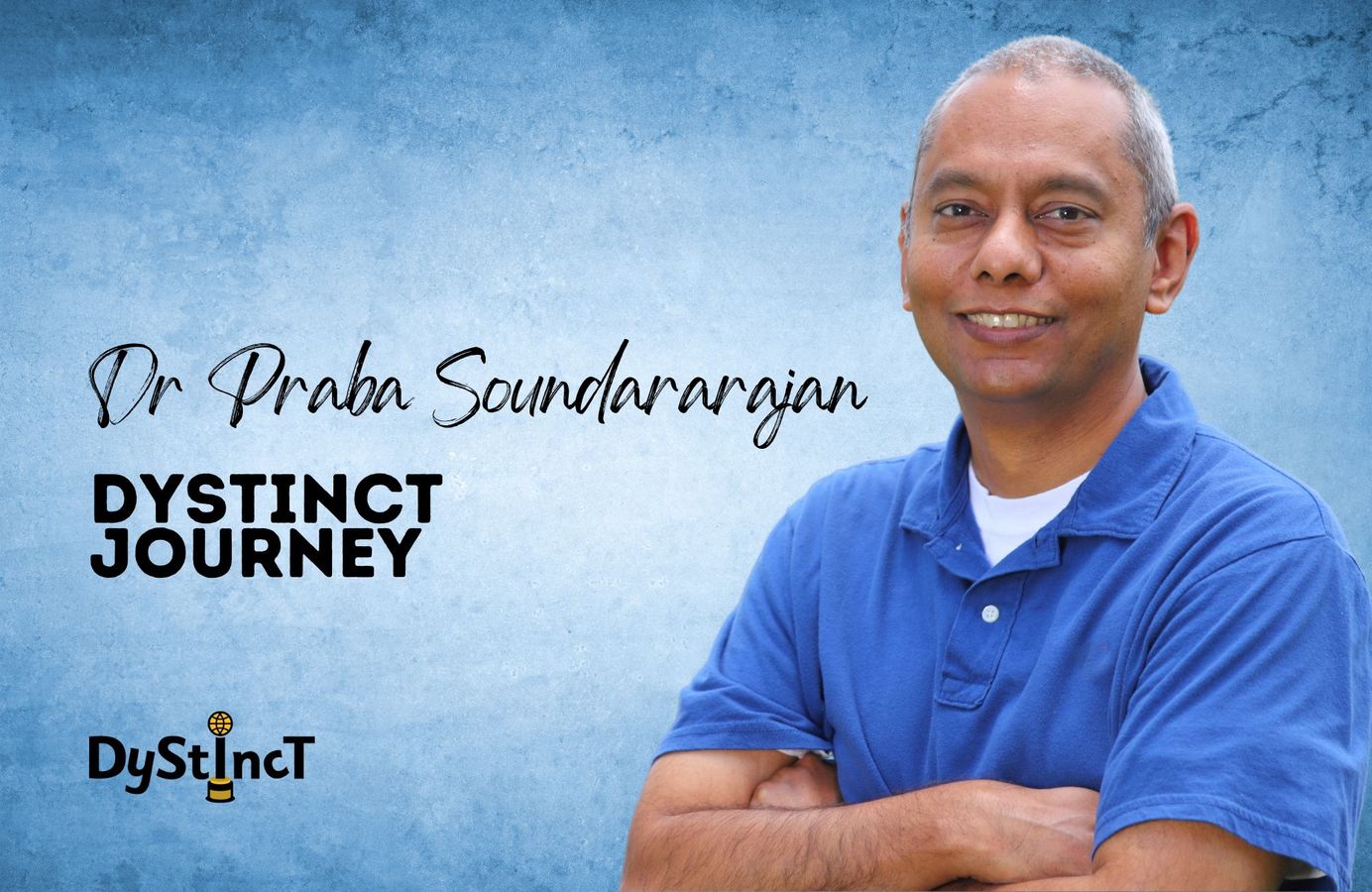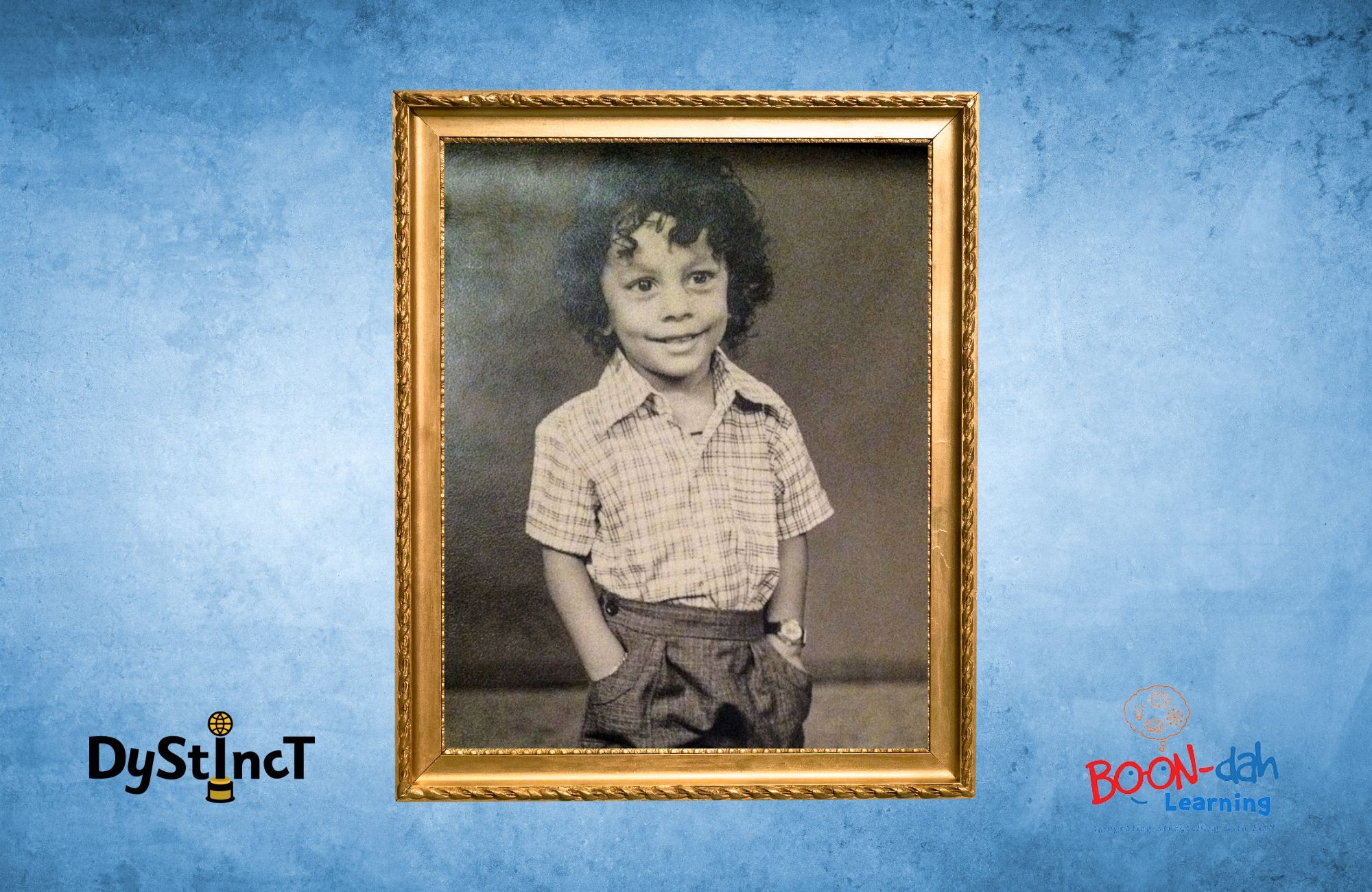
Issue 12: Dystinct Journey of Dr Praba Soundararajan
The story of how Dr Praba took his personal experience of being dyslexic, knowledge as a neuroscientist and love for Tintin to write engaging stories for children to introduce them to STEM and visual literacy, which was vital in making a neuroscientist out of a child labelled as stupid.
It's a busy morning at the Moffitt Cancer Center in Florida. Dr Praba Soundararajan is at his desk, working meticulously through the paperwork for filing patents and licensing the latest inventions at his center. When it's time for Praba to finish up for the day and head back home, he is excited. His head is brimming with innovative ideas that Pumpus, the pumpkin, Filberta the robot and Filbin the rubbish bin, will take kids on in his next new STEM storybook and hands-on project kit.
"The brain is very plastic in the first 10 years of a child's life, and dyslexic brains are wired differently. You have to approach learning from a different perspective. We live in a text-centric society. Millions of years ago, text didn't exist. Text is a recent invention of human beings that we have somehow ended up calibrating as the centrepiece for human education and ignored other forms of learning. Imagery is also a form of learning. Just like textual literacy is one form of learning, visual literacy is another form. A picture can speak a thousand words. Dyslexic children are visual learners, and they learn in short snippets. You don't want to bombard them with text and black-and-white images that don't captivate one's eyes. I think you must teach a dyslexic child via stories. It's called narratives in the world of education. Learning has to be through a narrative style of teaching; it has to be simplistic, approachable and hands-on. We learn by seeing, by hearing and then by doing," explains Praba, who is a neuroscientist by training.
Praba grew up in Pondicherry, a French colony in Southern India, in the 70s with dyslexia, dysgraphia and dyscalculia. He admits that he didn’t have a happy childhood. “Those days, nobody had a clue about learning difficulties. I just thought that there were two kinds of kids; one was smart and the other dumb. So, I assumed I belonged to the dumb category at the bottom 5% of my class," shares Praba.

As a child, Praba couldn't read properly, and whatever he read, he couldn't remember. He barely managed to stumble through school and even had his father plead with the school staff to allow his son to pass to the next class every year. "The Indian education system is text-centric. You're expected to read text, memorise it, write answers in exams, score well, get a job, and move on in life, but that's not how dyslexic brains work."
Even in the midst of all the self-esteem wars, there was hope in me, but I was trying to figure out what that was.
Praba shares that he was spiritual even as a child. His inability to read puzzled him, but in his heart, he knew that there was a greater power, and he, too, despite being labelled as dumb, had a purpose in life. "Even in the midst of all the self-esteem wars, there was hope in me, but I was trying to figure out what that was."
Praba recollects that he spent hours leafing through the pages of Tintin, absorbing the vibrant drawings and adventurous stories that carried his little heart away from his anguish, much to the annoyance of his parents, who wanted him to pick up a school textbook instead. He also had a fondness for science textbooks with short snippets of information and illustrations that he could read and understand. "I collected a lot of snippets of information on science. I liked science. My dad gave me money to buy books. I acquired a huge collection of books, though I couldn't read them. Curiously enough, I had a strength; I didn't have to read a book completely to understand it. I just have to skim through it, and I can pick out the most important bits of information, and I could put that together and actually learn about it."
Speaking of his family and the environment he grew up in, Praba shares that he has a younger brother who was considered the smart child of the family. He lived in constant fear of his parent's reaction to his teacher's updates of his failures. Nobody had his back, and he had to fend for himself, but he is pragmatic about it now as he explains that back then, his parents and teachers had no awareness that learning difficulties were a thing. "It used to make me sad. I used to wonder what the issue with me was. Society, parents included, liked you if you did well at school, and if you didn't, you didn't matter."
This post is for paying subscribers only
SubscribeAlready have an account? Log in


